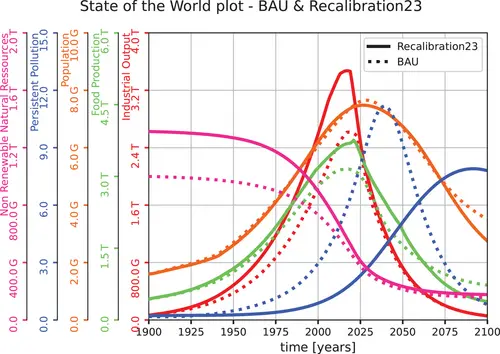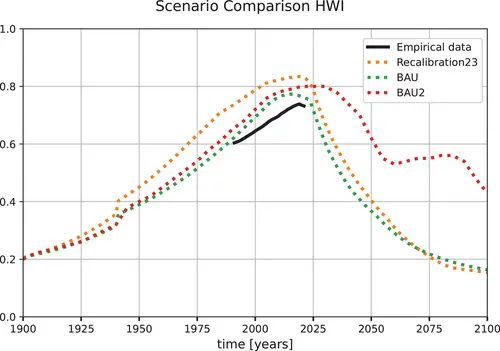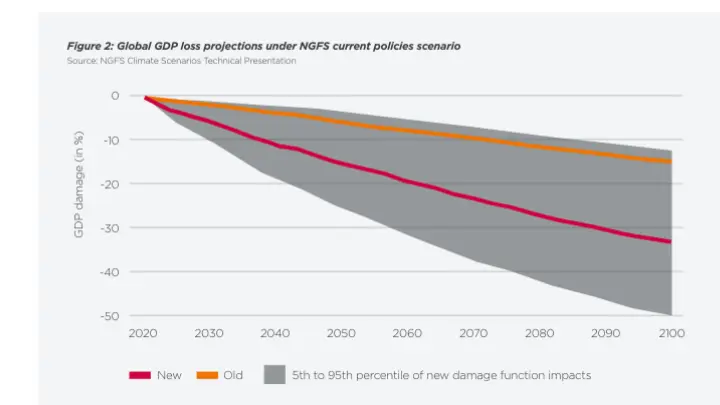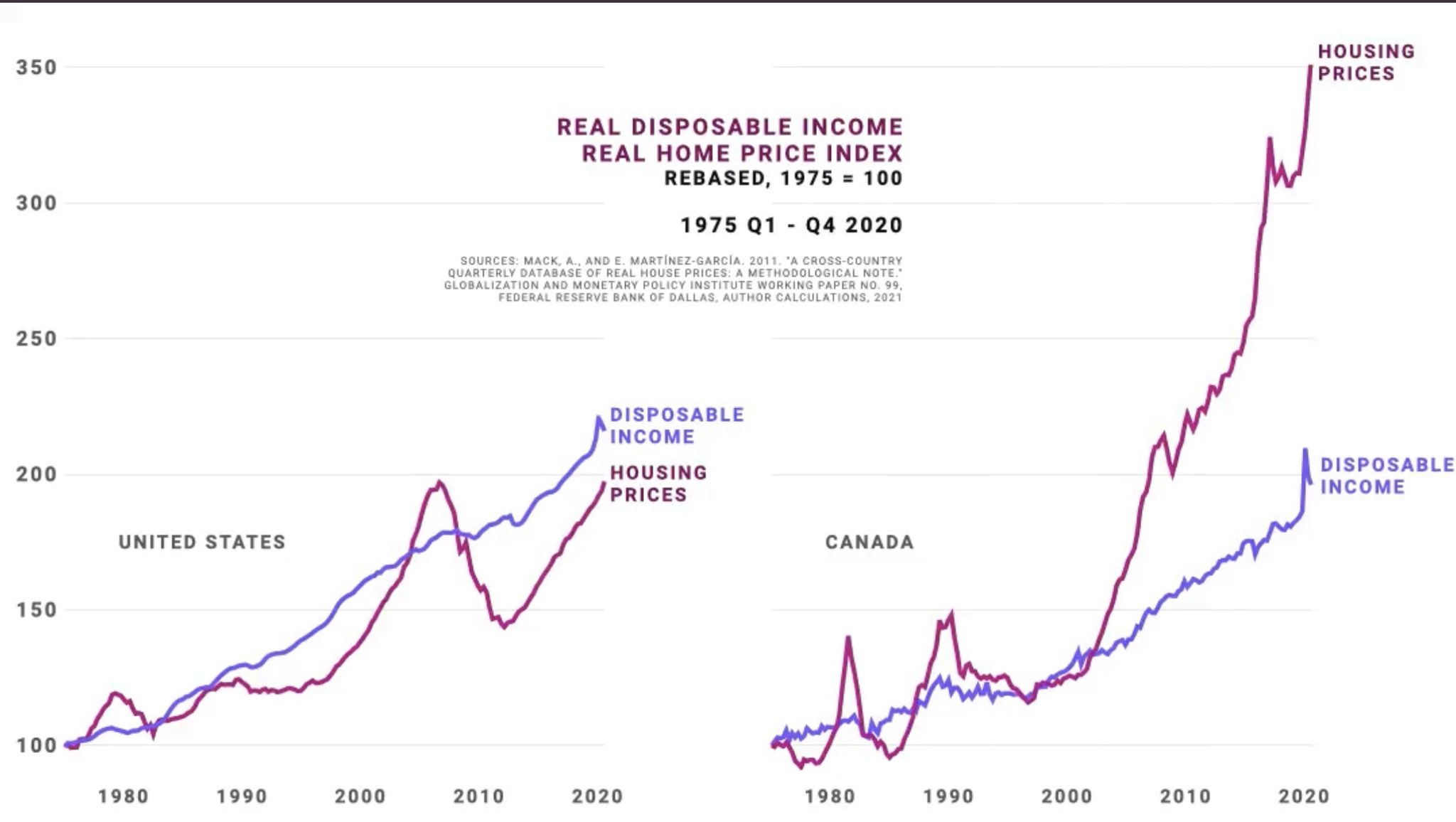I’ve been noticing a recurring sentiment among Americans - frustration and disillusionment with the economy. Despite having gone to school, earned a solid education, and worked hard, many feel they can’t get ahead or even come close to the standard of living their parents enjoyed.
I’m curious - is this experience unique to the United States, or do people in other countries share similar frustrations?
Do people in Europe, Australia, Canada, or elsewhere feel like they’re stuck in a rut, unable to achieve financial stability or mobility despite their best efforts?
Are there any countries or regions that seem to be doing things differently, where education and hard work can still lead to a comfortable life?
Let’s hear from our international community - what’s your experience with economic mobility (or lack thereof) in your country?"
i’m brazilian, my brother moved to Portugal some years ago and his quality of life improved dramatically. He used to live near a bank that was robbed pretty frequently and that was pretty frightening
Even though he moved to another country, my bro isn’t rich (sure seems that way though, compared to living standards here lol). It’s just that there you can be not rich and still have quality of life, safety and be able to actually afford things.
I’m currently living in Brazil and rly what worries me most is that one day I will want/need to live alone but rent can be very expensive (i’ll probably never own a home or even my own apartment, this is unacceptable and it’s the reality we live in), and the minimum wage in Brazil (and probably lots of other countries) is absolutely dogshit.
I’m Brazilian too, now living in Australia
I think what’s happening over there now is something that Brazilians are used to since the 80s at least, when the prosperity of the earlier decades wrapped up. So I’m told by Brazilian boomers, given I was a kid in the 80s.
So yep I’m thinking to myself that US is getting to officially belong to the 3rd world.
The rich don’t stay rich by letting other people join their club
We are reaching the limits of an “infinite growth” mindset. You can’t make money infinitely, which is why we are witness unprecedented amounts of shrinkflation, price gouging, and of course, enshitification. And housing prices.
The theory behind capitalism doesn’t require infinite growth. A society could have continual “profit” based on the use of renewable resources. The explanation for why we’re constantly expanding our exploitation of the planet is a little more complex than just an inherent trait of the economic system. That’s kind of a nasty oversimplification that people apply.
I’m curious about the same things - which you won’t find in this thread. Apart from a couple people who actually tried to answer OP’s question it’s just typical blah-blah.
There appear to be a few folks who answered my question.
the 22 people with 12 digits in their net worth don’t want you to have a spot at the table. they’d sooner kill you than risk letting you have upward mobility
At a very big picture scale, we’ve hit the point where the macro level benefit of extracting resources to drive economic and human population growth is less than the cost of such extraction and its associated pollution and other externalized costs, and the cost of providing the now very large population its standard of living.
It is now too costly to even maintain the real economy and real living standards as they are, thus everything becomes more expensive, more and more people fall into poverty, famines occur from food shortages/price hikes, more and more are killed or uprooted or financially devastated from more frequent and severe natural disasters.

Thats the latest update to the World 3 model, from ‘The Limits to Growth’, originally done by MIT back in the 1960s.
Recalibration23 is the latest revision.
Main difference is the old ‘pollution’ metric was just replaced with co2 level, which is much easier to measure accurately.
…
This is why everything is obscenely financialized.
Overwhelming financialization is a very good historical indicator that a civilization level collapse is about to occur, and it also coincides with an absurd wealth disparity, as financialization necessarily cannibalizes the remaining real economy, concentrates wealth, and makes the investment done by the smaller and smaller oligarch class less and less profitable and rational, chasing insane schemes and blowing up bubbles.
…
Here’s standard of living:

In 2050, average human standard of living will be roughly where it was in the Great Depression / WW2.
And about a billion people will have died, largely from famine/overbearing food costs, and natural disasters, intensified by global warming.
The labor market is a free market - this means that prices are regulated by supply and demand.
If people have fewer children, there will be fewer workers, and therefore lower supply in working hours. This will mean wages would go up - and quite significantly. This is why i think it would make sense to implement policies to encourage people to have fewer children, or at least not standing in the way of DINKs (double income no kids). Because i want to keep the quality of life up.
So i guess, yes, it does make sense if the population number drops (peacefully). High unemployment rates typically precede social unrests, and i foresee high unemployment rates around 2040. Because economic growth is slowing down, and it is unlikely that it can be brought back to the rapid pace it had in the 1960s.
But it is economic growth that causes the most demand for workers. Simply maintaining things does not require such a high work input.
Except automation is a thing.
As soon as they become economically viable, robots will be mass produced.
You forsee high unemployment around 2040?
Who are you?
What model are you using?
… Here’s the actual paper I am showing images from, I’m willing to bet its just a little bit more advanced and comprehensive than the IS LM graph from your first macro econ class in college.
https://onlinelibrary.wiley.com/doi/full/10.1111/jiec.13442
We are not talking about natural declines in human population growth being the single change, where we hold everything else ceterus paribus and then go from there.
We are talking about a systems dynamics model with multiple factors that all affect each other simultaneously, actually based on historical empirical data, taking into account the externalities and caveats and complications that are so often glossed over by pop econ, the stuff you don’t get to until you get a masters or phd.
We are talking about a complex systems collapse that indicates mass die off from famines, food prices hitting the stratosphere, increasing climate disruption.
Maintaining a system in a steady, no growth state actually does become more expensive and labor intensive after less and less farmers can afford fertilizer, the farmland keeps burning down or flooding, less and less logistics can afford gas prices, unmaintained basic infrastructure falls apart, that kinda stuff.
Have you seen this?
Somewhere around 25% less world GDP than now in 2070 from climate change destroying everything.
Not 25% less world GDP growth, 25% lower absolute world GDP.

This is coming from the UK’s most credible association of actuaries, the folks that actually do all the complicated, summated math from the micro level up, that most economists just hand wave attempt to explain from the macro level down.
EDIT: Take a look at that first graph I posted and note how one of the axes labels is Non Renewable Natural Resources
The entire infinite growth paradigm of most mainstream economics is untethered to reality, often handwaved away with ‘oh technology will just make everything better, everything more efficient’.
Everything crashes when its not cost effective to extract the resources the system requires to function, then parts of the system just start shutting down.
Do you have a matrix chat account? I would like to talk to you in more detail.
I have collected these thoughts discussing with a small group of friends.
To really understand long-term development, it isn’t enough to just consider “pop econ”, as you rightly put it. I have considered some thoughts into it that are right on the border between reality and mysticism, for lack of a better word. The reason people do things is because deep inside, they are moved by the meaningfulness of it all. That is why it makes sense to consider the world’s fate on a story-telling scale.
People believed during the 1960s that economic growth was the right thing to do. As we all know (The Limits to Growth) it can’t go on that way forever, in fact it has to come to a halt. That is why the economy is in turmoil, and people must have fewer children or we face a large unemployment crisis in the future.
When that exactly will be is a subject to debate, and i put 2040 because there’s Renewable Energy that has to be set up, including everything that has to do with it (green steel, …). So that takes a few (maybe 20) years to install. After that … what comes after?
In my eyes, the unemployment crisis is bigger than the food crisis. Acres lose fertility, yes, but they retain 40% fertility in the long-term, even with all the insects dying and the mycorrhiza dissolving. Since people only use 30% of (technically) possible food-sources today, this should work out.
Somewhere around 25% less world GDP than now in 2070 from climate change destroying everything.
I don’t think we’ll have (and i hope we won’t still have) “GDP” in 2070, honestly.
Unfortunately I do not have a matrix account, I only have a shitty smartphone.
I am still recovering from spending a year homless after being assaulted and held hostage in my apartment for a week… my wrist (and many other body parts) are still massively fucked up, I can only type in bursts before immense pain sets in.
ooh shit, how did that happen? was it a crazy ex? i hope you get better soon. i know how demanding these post-stress syndromes can be. (i’m struggling with something similar, but not as severe)
Had some recently met friends of friends, and friends I’d known longer, over for a small get together.
One of the friends of friends decided not to leave.
Fucked up me and my apartment real bad, injured me so bad I lost my job, lost my phone, lost my computer, got evicted, lost all my other belongings, pent a year homeless, got my wallet stolen many times, further beat up by fentanyl addicts on the streets.
I am recovering slowly, but I have to do all my own PT, as I can barely walk, don’t have a car, couldn’t afford the proper PT anyway as half my disposable income is going toward paying off debt from my stolen credit cards that the credit bureaus refuse to remove from my record.
PTSD is something I now have but is the least of my concerns, Im more worried with re learning how to walk, as my torn muscles attempt to heal around my broken bones.
In China this led to something they call ‘lying flat’, in Korea it’s called N-po generation.
Yes, the same stuff is mirrored in the EU. We also had george floyd protests.
Leads me to believe it’s all more a cultural phenomena. Imitation of the popular rethoric.
Or the post wWII baby boom had similar effects around the world creating a generation whose concentration of wealth has had negative impacts on their society
Economies do not stagnate simply because of popular rhetoric. There are real people making real decisions that cause this to happen. Its not fucking vibes based
It’s social ossification, an inevitable part of the systemic cycle.
The people at the top have wealth to enable all the best opportunities go to their children and friends’ children.
So all the plebs are left struggling for scraps.
There are more children of mega-rich than mega rich, and even accounting for portion who flaunt off or abandon family path, than there are mega-top positions, so most of the second tier positions go to them too.
Then, of course, neoliberal policies have made things less equal so that the poorer you are you now need to work even harder and be even more exception than you did before.
Edit: am British. See it here, seen it over the pond and in (the PR of) China, too.
Take some of it with caution. Powerful forces are amplifying unhappiness.
Some things suck. No area is thriving. Dictators are taking power and there are several distressing wars.
Things have been worse and improved, but it us not a straight line.
Yeah the more I learn history the I feel we are in an imperfect but exceptionally opportune time.
Not being coy: can you help me understand the word choice of “opportune”?
I’ve recently become fascinated by history and the underpinned stories that really get to the answers to the WHY questions.
We can organize easier and for things we wouldn’t have even known were happening in the past. The Internet and our understand of how to interact with it is not very mature. That takes generational knowledge imo. Things are more chaotic and unprecedented than ever, and we at least have the opportunity to be more informed than at any other time in history. I think we can learn from the past and even if we fail we’ll hopefully have helped future generations by giving them a good case study.
Well put. It’s important to learn from history
It’s very much the same in the UK and, from what I hear first hand, also in Germany, Australia and Canada
My rough take:
The industrial revolution never stopped, we are still very much on the trajectory that accelerated in the 18th/19th centuries.
The trend is to concentrate wealth in a production owning class. WWI and WWII were temporary disruptions to this. The post war consensus saw great national projects and investment happen at just the same time that mixed skill labour was in wide demand thanks to technology’s progress at that point. The baby boomers were advantaged by this and ended up with disproportionate ownership of land and production means.
The last 50 years has been a slow return to trend. With production slowly transitioning from manual labour to mental labour to fully automated labour. The freak occurrence that benefitted baby boomers has not repeated.
The trend will continue to devalue the work of most individuals. A small proportion will be able to leverage rapidly advancing technology and take a small stake in the monopoly of the 0.001%. The rest will progressively be priced out of elevating themselves into the middle class. The result being that there becomes a vast underclass characterised by renting, inability to start a family, and insecurity but just enough comfort to prevent rioting. There’ll be a vast range of skill within that class, however effort with make only a token difference to wealth.
One problem with your ending: They can’t stop taking, so they won’t stop short of where people will riot. The rich will never reach such an equilibrium state because one of those psychopaths has to be the emperor and others will always try and usurp the power.
Depends what it is you imagine they’re taking. There comes a point in wealth when you’re not really talking about monetary amounts or assets per se but raw power, measured in whatever abstract units you wish to use. The hyper wealthy care about political and cultural power (a battle very much underway and largely won). They don’t care so much whether the average family has $10 left at the end of the month (or $200 or -$50). The numbers become meaningless. What’s important to the hyperwealthy is that whatever that number is it not be able to purchase strategic land, production, or political power. (Elon wouldn’t care if every worker became a millionaire so long as bread now cost 3 million and property a billion.) Their power is felt in their exclusive access to limited resource (certain beach fronts for example, or a presidents time).
To that end there comes a point where they’re not interested in taking “money” any more, since they already entirely dominate that power dynamic. You could make the number whatever you like they’re still in control. Them “allowing” a very very modest improvement in some living standards doesn’t cost them anything but buys a relative amount of civil order, which is how I suspect this is likely to play out.
The pivot to far right politics over the last 20 years is part of this. When you are artificially keeping a large part of a nation on the brink, and you don’t want them to accrue traditional assets like land or wealth, then a potent replacement is to “pay” them in permission to hate.
History shows that this is a foolish course and it doesn’t last long. But perhaps a few “stable enough” decades is all these materialist hyper barons care about. Wealth and power is to be enjoyed now. There’s no god or heaven only power and the future is someone else’s problem…
You’re missing my point: The point where they stop chasing money, or power, or anything you want to call it, is when they have it ALL. They are not a homogeneous group. More than one want everything, and they will burn the world down to get it. The point where stopping is even forethought will be when the guillotines are at the door or humanity is wiped out.
This is basically Player Piano by Kurt Vonnegut
Go look at housing prices vs incomes in the USA, then do the same for Canada. I’ll let you draw your own conclusions on how people feel up here.
Would youcare to save everybody the trouble and spend a minute just tell us?
Housing is expensive in the USA. It’s even worse in Canada.

Wow, how do any non-homeowners in Canada have roofs over their heads? It pays to be a landlord there apparently.
I think this happens in other countries too. It’s a result of neoliberalism:
- They cut spending on education, social security and publix infrastructure. That makes it harder for the youth to get started.
- They also cut taxes on the wealthy - meaning a lot of the wealth remains with older generations and especially the richest 5%.
- And finally, they pursue union busting, deregulation and globalization. By playing out the interests of workers in different countries (or different ethnicities in the same country) they’re making it harder to collectively bargain for good wages and good working conditions.
Now, I think the US is having it especially bad. In Germany they do regularly cut social security but we have public health insurance (though the rich get to opt out instead of paying their share) and overall a wealth distribution which is not good but also not quite as bad as the US. We also have a very different job market: Due to lack of highly educated workers, it’s easy to get a job and good conditions if you have a good education (which is basically free if you can afford to take the time). And they can’t fire you willy-nilly, this is hugely important for becoming financially stable and feeling safe.
Our main problem economically is the “Debt Brake” - a rule that limits government debt (and thus spending) without accounting for the required infrastructure investments. That doesn’t make any economic sense - anyone would loan money to make an investment if that facilitates economic growth!
We have worse wealth inequality than the golden age
In my experience, things are a bit similar in Austria, Europe. I had worked an internship in a software development company around 2016, and things were splendid. Everybody was in a good mood, and things seemed to move smoothly. One year later, in 2017, people were holding back a bit more.
I went there again in 2019, and it was okay. In 2020, the business closed.
I think the halt of economic growth is a global phenomenon. Throughout human history, there used to be three big waves of development:
- agricultural (farmers) - biochemical work
- industrial (machine operators and construction) - mechanical work
- information (IT) - electrical/information work
now, it seems to me, the economy is fully developed, and growth slows down. The only growth i foresee in the future will be the settlement of Mars (because mars can theoretically hold up to 1 billion people), and “cleaning up” on Earth (renewable energy).
I was with you up until the Mars bit 😄







